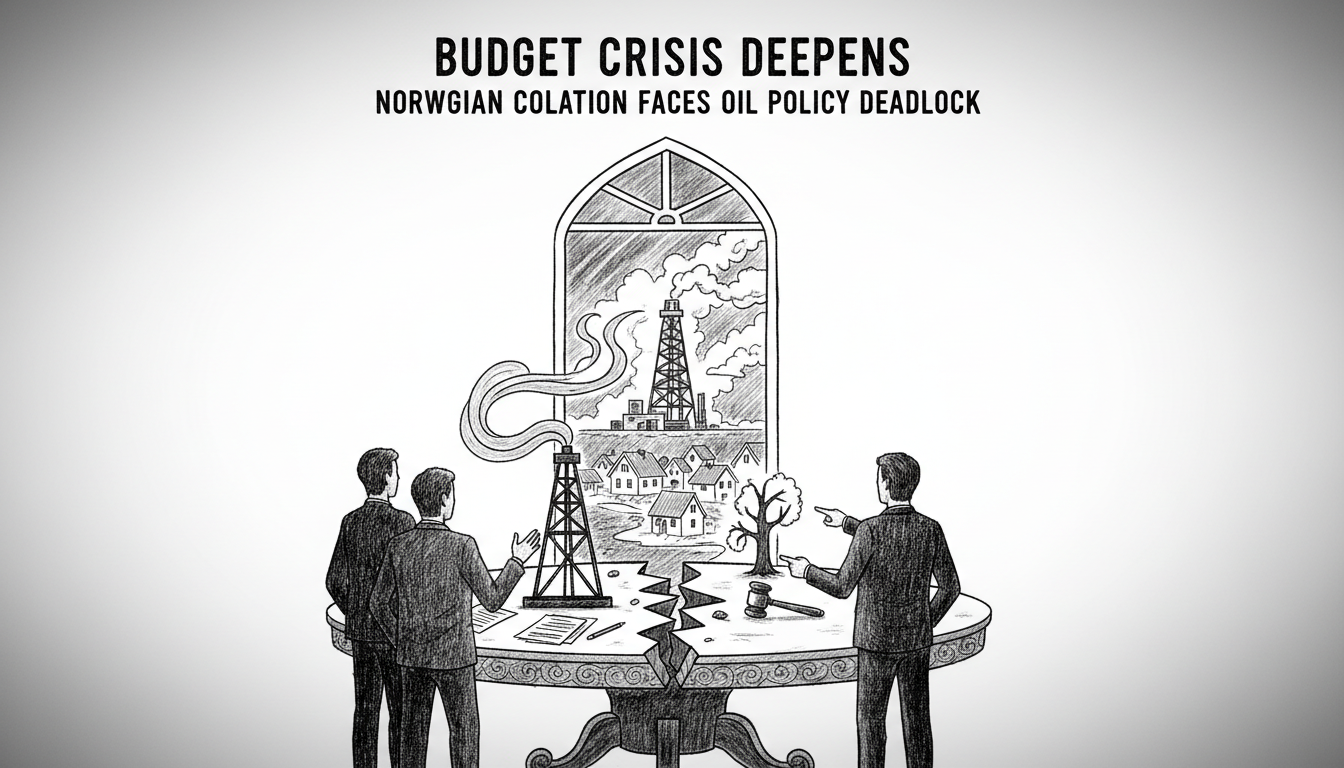Norway's red-green coalition government faces a critical budget impasse over oil policy. The environmentalist party has called an emergency meeting after ten days of negotiations failed to produce movement on petroleum policy. This standoff threatens the stability of Prime Minister Jonas Gahr Støre's government during crucial budget discussions.
Party negotiators expressed deep concern about the lack of progress in budget talks between the five coalition partners. Negotiations have continued through the weekend without resolution. The environmental party entered discussions demanding a concrete plan for phasing out Norwegian oil production but found no willingness to discuss solutions from larger coalition partners.
Chief negotiator Ingrid Liland stated before talks began that her party must see a new course in oil policy. She highlighted the 100 billion kroner allocated to petroleum activities in the government's budget proposal. This substantial investment conflicts directly with environmental parties' core demands for transition planning.
The political reality remains challenging for environmental advocates. A clear parliamentary majority supports continuing oil exploration on the Norwegian continental shelf. Both the Centre Party and Labour Party have declared phase-out plans completely unacceptable. This creates a fundamental conflict within the coalition that budget negotiations have failed to resolve.
Other left-wing parties share environmental concerns about oil policy. Both the Socialist Left and Red Party support creating a phase-out plan for petroleum activities. Yet the governing Labour and Centre parties maintain their firm opposition to such measures, creating a clear dividing line in negotiations.
Financial policy spokesperson Marthe Hammer confirmed the challenging nature of budget discussions. She described parties as standing far apart while emphasizing that negotiators haven't given up. The Centre Party's representative in talks declined to comment on progress or distances between negotiating positions.
This budget crisis reflects broader tensions in Norwegian energy politics. The country remains Europe's second-largest natural gas supplier and a major oil producer. Environmental parties argue Norway must lead in energy transition, while traditional parties emphasize petroleum's economic importance and existing parliamentary mandates.
The current impasse carries serious implications for Norway's climate commitments and energy markets. Failure to reach agreement could trigger a government crisis during volatile energy market conditions. The environmental party previously indicated willingness to bring down the government if their demands aren't met, though they entered negotiations without oil ultimatums.
Norwegian oil policy debates directly affect major production areas including the North Sea, Norwegian Sea, and Barents Sea. Key fields like Johan Sverdrup, Snorre, and Troll represent substantial national assets. The government must balance environmental concerns with economic stability and energy security considerations.
Budget negotiations occur against the backdrop of Stortinget's upcoming session. Parliament must approve the national budget before the new fiscal year begins. The current deadlock raises questions about whether the coalition can maintain unity on energy policy while addressing climate commitments and economic priorities.

